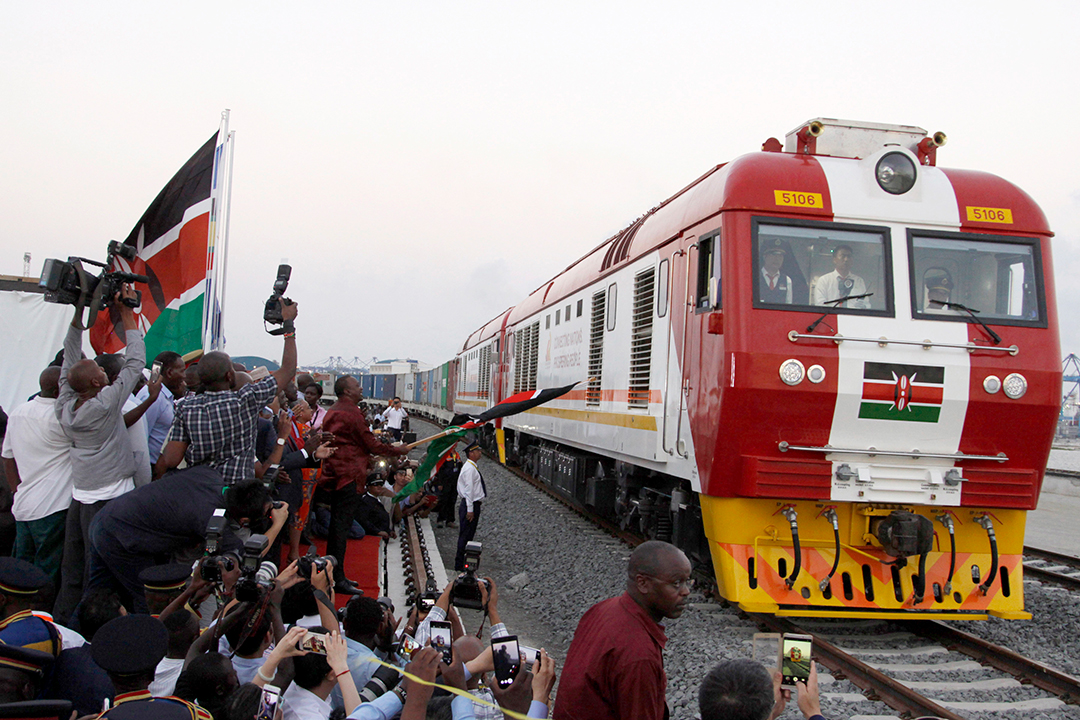ADF STAFF
Kenya’s Court of Appeals has ruled that a $3.2 billion contract for the country’s new Standard Gauge Railway (SGR) between Mombasa and Nairobi was illegally bid.
Kenya Railways awarded the contract to the China Road and Bridge Corp. after a memorandum of understanding dating to 2011. Three years later, Kenyan civic activist Okiya Omtatah and the Law Society of Kenya, the country’s leading bar association, sued to stop construction on the project, saying the Chinese company won the project without going through a proper public bidding process.
A court dismissed the case in 2014, and construction went ahead. In June 2020, appeals judges ruled that the bidding process violated Article 227 of Kenya’s Constitution.
The article says public contracts must be awarded in a process that is “fair, equitable, transparent, competitive and cost-effective.”
The court ruled that the bid was not open to a public tender, meaning that other qualified bidders were not allowed to compete for the contract.
Global Construction Review reported that the court also ruled that the contract violated Kenya’s Public Procurement and Asset Disposal Act, which guarantees open bidding by public enterprises.
The railway is part of China’s ambitious One Belt, One Road project, spreading Chinese-financed infrastructure throughout the world. Since the worldwide COVID-19 outbreak, many countries have had to balance paying bills to China and protecting their economies and citizens’ health.
The first 485 kilometers of the railway project opened in 2017. The second phase, a 190-kilometer link between Nairobi and Naivasha, was finished in October 2019. The extension to Malaba on the Ugandan border is scheduled for completion in 2021. This last phase consists of upgrading a meter-gauge line and will not be done by a Chinese contractor.
Gauge refers to the width of the spacing between the two track rails, with meter-gauge rails being 1 meter apart. Kenya’s meter-gauge railway is obsolete and in poor condition. The newer standard-gauge railway has its rails 1.435 meters apart.
Both lines connect Kenya’s main port city, Mombasa, to the interior, running through the capital, Nairobi.
Omtatah alleged in his 2014 lawsuit that the contract was “single-sourced.” His petition said that the project was a “100% Kenyan-funded venture,” with Kenyan taxpayers footing the bill, the India-based news service WION reported.
The project is believed to cost $3.5 billion, with 90% of the cost financed by the Exim Bank of China in the form of two $1.6 billion loans. Business Daily Africa reports that Exim made the loans conditional on the appointment of a Chinese contractor to build and operate the line, meaning it could not go to a public tender.
China gave Kenya a five-year grace period to begin payment on the project, with Kenya only paying interest on the debt. That grace period ended in January 2020. Business Daily Africa reported that, with the end of the grace period, Kenya’s payments would rise 130%.
So far, revenues generated by the new railway’s passenger and cargo services have failed to meet operational costs. The railway costs an estimated $14 million per month to operate but is averaging only $7.9 million in monthly revenues.
The loan’s interest is 3.6 percentage points above the six-month average of London Inter-Bank Offered Rate, which serves as an international benchmark. The loan is to be repaid over 15 years.


Comments are closed.